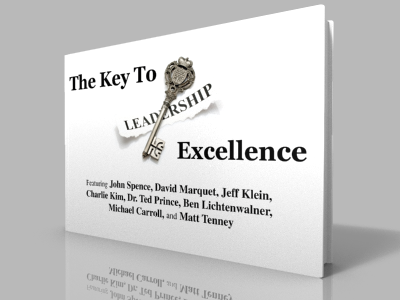The tremendous hope I have for our future has been restored once again.
I spent last week in Atlanta at the National Conference for the Association for the Promotion of Campus Activities (APCA), where I presented to college students and their advisors.
I met many, many people over the course of the week. And, as usual, I didn’t bother with the Where are you from? What do you do? type of questions. I went right to what matters to me and asked, “What is your name and what are you most passionate about?”
Although I didn’t formally record the answers in a scientific way, I feel pretty confident in saying that around 60-70% of the students I met answered that question with some variation of, “I’m most passionate about helping others.”
I heard many inspiring examples of how these young people are actively engaged in serving their communities and focusing their energy not on how they can get more stuff or have more fun, but on how they can help the people around them and make our world a better place.
They seemed so wise beyond their years, already aware of the truth that the most joyful, meaningful life we can live is one that is devoted to service.
I had the good fortune of meeting one student from Northwestern State University of Louisiana who mentioned that he had a written an essay on how serving St. Jude Children’s Research Hospital has absolutely changed his life. I’ve included this essay below. It is very inspiring, includes some great lessons on leadership, and is well worth the read.
Enjoy!
(As a side note, Michael would love to work for St. Jude in Dallas after he graduates this May. If you know anyone there who could help him do that, please let me know. He has an impressive resume, which I will gladly forward on to you.)
Leading as a Servant and Inspiring Change
Michael Ryan Stephenson
Growing up, I had many thoughts about what leadership meant. I thought that leadership meant having power, rank or distinction. I thought in order to be a good leader, one had to rule with an iron fist or be able to persuade people to do what they wanted them to do. I thought that leadership was about “I” and not “we.” Through St. Jude and in my growth as a person, I now know that those definitions are completely false. Because of St. Jude, I’ve learned that in order to become a good leader, one must first become a good servant. This new found definition of what leadership truly means has completely changed my life, guides my work and drives my passion. St. Jude has given me many things in addition to a new insight and perspective on leadership. It has given me the ability to realize my own leadership potential, it has given me transferable skills that I will use for the rest of my life and, most importantly, it has given me purpose. In all cases, St. Jude has helped me develop into a better leader.
Upon entering college, I was always involved but never in a capacity where I was seen as the leader of the group. I served on committees and participated in a variety of activities, but by no means considered myself a leader or thought that I could be. After getting involved with Up ‘til Dawn at Northwestern State, I started to realize that I could in fact be a leader. From serving on a committee to serving as Executive Director, St. Jude has allowed me the opportunity to unlock the leader within myself and has given me the faith and confidence to know that I can make a difference. UTD has given me the ability to become known as a trusted leader and a valuable resource to many facets of campus life. It makes me proud to automatically be associated with St. Jude and know that the organization has become notable on my campus. My involvement with St. Jude has also given me confidence in other aspects of my involvement. Because of that confidence and my new perspective on leadership, my fraternity elected me President and I have been inducted into two leadership honor societies. St. Jude has definitely been a springboard for my collegiate career and life. I do not think it is possible to understand how much this has meant to me and has helped with my development. It has given something that cannot be seen on a resume or in a portfolio – a new beginning.
St. Jude has given me a skill set that can be applied to many different areas of my life and future. It has developed and fine-tuned my communication, organizational and networking skills. The year-round work that goes into planning and executing an UTD finale event takes lots of communication. I have learned to effectively communicate with others within the campus and local community in order to create awareness and solicit help for the event. This has put me in many different positions – speaking in front of student groups, at city hall meetings and at school sponsored events. The ability to speak in front of large crowds and, more importantly, the ability to capture the hearts of people in order to make them feel conviction about something as special as St. Jude is invaluable. Before working with this organization, I would have never been able to do that. Organizationally speaking – the skills that revolve around event planning is one of my most valued skills gained from this organization. No matter what you do, the ability to manage people, time and resources is going to be a useful skill. The networking experience I now have is tremendous. It is so important to build a network, socially and professionally, and I have developed the skills to do that. Without realizing it, working to raise support and awareness for St. Jude has given me many tangible and intangible life skills that I was not expecting but value more than anything.
Most importantly, working with St. Jude has given me something that most search a lifetime for – a purpose. Before working with St. Jude, I felt like I had no real direction in life. I was lost and just going through the motions. Because of this outstanding organization, I have discovered my purpose in life – to help others through service. In particular, it has given me the aspiration to work in a non-profit setting that benefits children. In the words of our founder Danny Thomas, “all of us are born for a reason, but all of us do not discover why. Success in life has nothing to do with what you gain in life or accomplish for yourself. It’s what you do for others. ” Knowing that I have a higher calling has filled me with a joy that is often hard to express in words. I know that I am important. I know that I exist for a reason. I know that I can inspire change.
Gandhi once said, “the best way to find yourself is to lose yourself in service to others.” This is not something that I just believe – it is something that is now intertwined in my heart and being. It is amazing to think how one single event, UTD coming to Northwestern State, can change the course of your life forever, but I am fortunate to be involved with this cause and to now intern for St. Jude. It has been my pleasure to work with this organization and I hope to continue to learn more about myself as I further develop as a leader though raising support and awareness for St. Jude Children’s Research.
Did you like this post? To receive The Ultimate Leaders E-Zine for FREE, just Click Here. It includes all my blog posts, interviews with great leaders, and other resources to help you become the Ultimate Leader.









